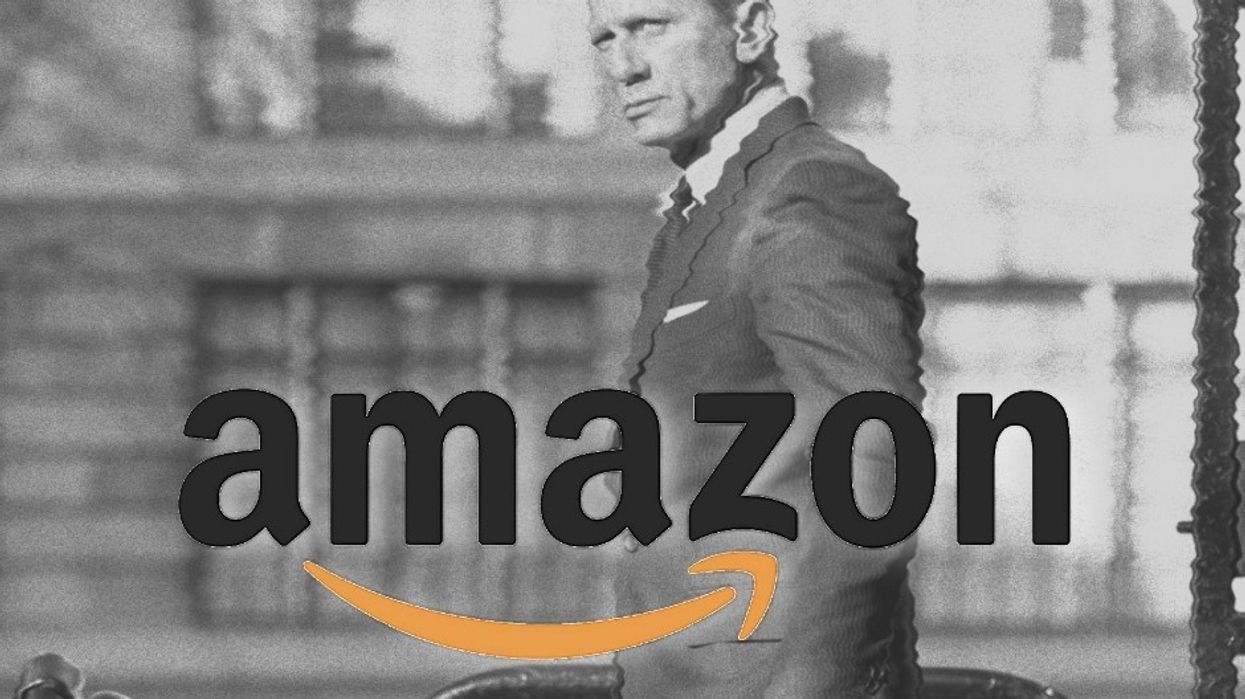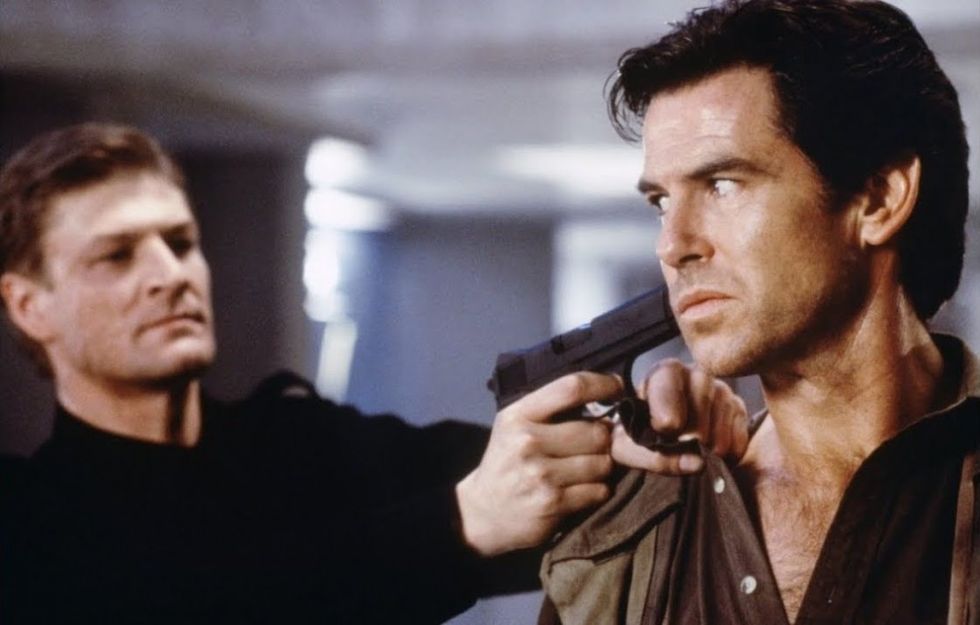This 'Bond' Writer Isn't Happy About the Amazon Deal
Spectre writer John Logan speaks out.

If you aren't aware already, we reported last week that MGM was bought in a landmark deal with Amazon for over $8 billion. The purchase gives the online retail giant access to studio amenities and a huge catalog of beloved film and TV properties.
Well, screenwriter John Logan just weighed in.
You might know Logan as the writer of The Aviator or maybe Gladiator. But Logan also wrote the James Bond films Spectre and Skyfall, so he's familiar with the franchise and how things work with Eon Productions, which owns half of Bond. The Bond team at Eon is comprised of Barbara Broccoli and half-brother Michael Wilson.
This week, Logan published an op-ed piece in the New York Times in which he very clearly asserts the Amazon deal is bad news for Bond.
Logan paints a picture of Bond story development that feels more like a family reunion, with writers and producers sitting around breaking story beats over dinner. They argue until a consensus is reached, Broccoli and Wilson presiding like patient parents.
With the intrusion of a corporate interest like Amazon, Logan sees that environment threatened.
"The current deal with Amazon gives Barbara and Michael, who own 50 percent of the Bond empire, ironclad assurances of continued artistic control," Logan writes. "But will this always be the case? What happens if a bruising corporation like Amazon begins to demand a voice in the process? What happens to the comradeship and quality control if there’s an Amazonian overlord with analytics parsing every decision? What happens when focus groups report they don’t like Bond drinking martinis? Or killing quite so many people? And that English accent’s a bit alienating, so could we have more Americans in the story for marketability?"

Logan doesn't want that.
"From my experience, here’s what happens to movies when such concerns start invading the creative process," he writes. "Everything gets watered down to the most anodyne and easily consumable version of itself. The movie becomes an inoffensive shadow of a thing, not the thing itself. There are no more rough edges or flights of cinematic madness. The fire and passion are gradually drained away as original ideas and voices are subsumed by commercial concerns, corporate oversight, and polling data. I wonder whether such an outré studio movie as Vertigo would have survived if such pressures existed then. Not to mention radical films like Citizen Kane, The Red Shoes, Cabin in the Sky, and Bonnie and Clyde."

And popcorn movies can be fun. I love a mindless watch every now and then. But I also want to be challenged as an audience member.
Why is Logan worried about Amazon in particular?
"It’s not necessarily a champion or guardian of artistic creativity or original entertainment," he writes. "In the context of the larger company, Amazon Prime Video is not chiefly about artists. It’s about attracting and retaining customers. And when bigger companies start having a say in iconic characters or franchises, the companies tend to want more, not better, and the quality differential can vary wildly, project to project. (See: the rapidly expanding Star Wars franchise at Disney and the DC Comics franchises of Superman, Batman, and others at Warner Bros.)"
Note the swipe at Star Wars. The recent trilogy, as we've covered, did not begin with the most thorough planning in mind.
"The Bond movies are truly the most bespoke and handmade films I’ve ever worked on," Logan writes. "That’s why they are original, thorny, eccentric, and special. They were never created with lawyers and accountants and e-commerce mass marketing pollsters hovering in the background."
Logan finishes by saying Bond is not "content." He's a character many truly care about, especially since he's been around for so long.
What do you think? Weigh in down in the comments.
Source: The New York Times











